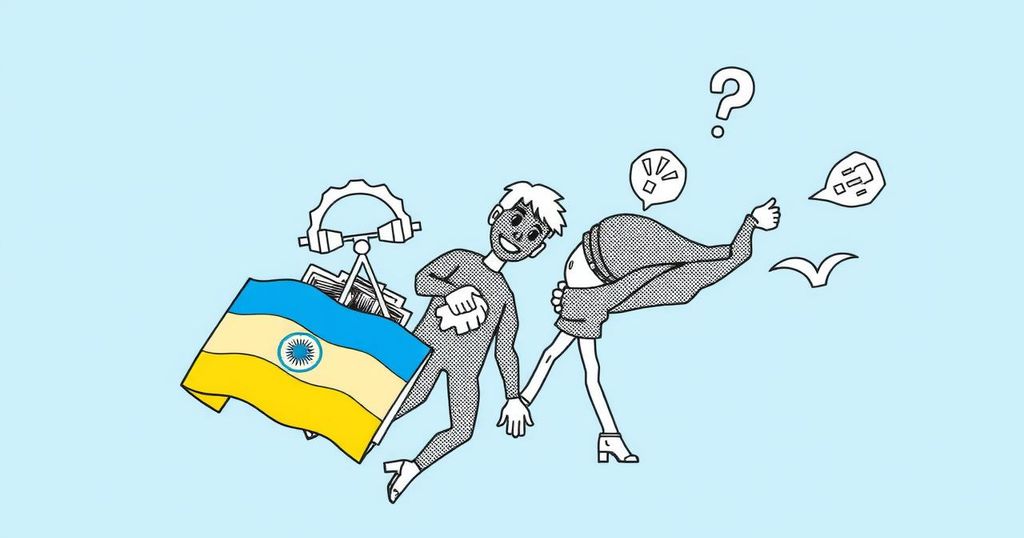Uruguay’s recent presidential elections were characterized by unexciting candidates, culminating in a runoff as concerns mount regarding young people’s disengagement from democracy. With high youth unemployment and a lack of effective political representation, many younger voters express a willingness to sacrifice democratic norms for tangible solutions. A disillusioned electorate, coupled with rising crime and government corruption, indicates urgent challenges that could undermine the country’s democratic fabric.
In the wake of relatively uneventful presidential elections in Uruguay, concerns grow around the youth’s disconnection from the political climate. The recent election cycle saw lackluster candidates and a resignation toward the outcome, with no candidate emerging victorious outright. Young Uruguayans, despite the nation’s otherwise stable political environment, are increasingly feeling disenfranchised and voicing a willingness to sacrifice democratic values for effective governance. This growing apathy, coupled with significant economic challenges, raises urgent questions about the future of democracy in a country that has long celebrated its peaceful political transitions.
Historically, Uruguay has boasted a vibrant electoral process characterized by active citizen engagement and spirited debates. However, the current climate is marked by an alarming trend among the youth. A 2023 Latinobarómetro poll revealed that 38 percent of young respondents would consider relinquishing democracy for a government adept at addressing pressing societal issues. This sentiment is particularly troubling given that the nation faces high youth unemployment, elevated dropout rates, and considerable mental health challenges exacerbated by the pandemic. The socioeconomic struggles facing young people raise important considerations regarding the political system’s responsiveness to their needs and aspirations.
Additionally, the discontent is not limited to the younger generation; older voters also express significant dissatisfaction with the government’s management of critical issues such as child poverty and rising crime rates. As the elections approach another round in the runoff between the leftist candidate Yamandú Orsi and Álvaro Delgado of the National Party, many undecided young voters feel alienated from the political discourse. Encounters indicated that these voters perceive the candidates as out of touch and disconnected, further complicating the electoral landscape and highlighting a growing divide within the society.
Uruguay has long been recognized for its political stability and democratic values. The country emerged from a tumultuous history under a dictatorship, fostering a culture that celebrates the peaceful transfer of power and participatory governance. Despite this tradition, the current political atmosphere reflects essential challenges, particularly among the youth, who are increasingly disillusioned by electoral processes and national issues affecting their prospects. Their growing dissatisfaction is a cause for concern, as it poses risks to the democratic framework that has been a cornerstone of this nation.
In conclusion, Uruguay stands at a crossroads where political apathy among youth and discontent across generations poses a significant threat to its democratic integrity. The current electoral climate, marked by unengaging candidates and unresolved societal issues, necessitates urgent attention to reinvigorate public participation and restore faith in governance. Addressing economic grievances, mental health crises, and active youth engagement in politics will be crucial in steering the country toward a more inclusive and democratic future.
Original Source: www.nytimes.com






